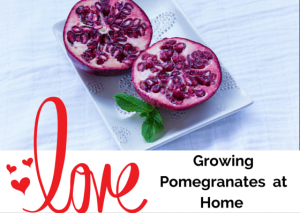Ever heard of the term Superfood?
The Macmillan Dictionary defines 'superfood' as a food that is considered to be very good for your health and that may even help some medical conditions. The Oxford Dictionary definition states a superfood is “a nutrient-rich food considered to be especially beneficial for health and well-being”.
In recent times the term Superfood believed to be a bit of a marketing term used to describe foods with supposed health benefits.
Whether you believe the hype, there are some foods out there that are extremely nutritious. Pomegranate's are one such food.
Since pomegrantes have been declared a Superfood they become highly sought after. There are a wide variety of health benefits associated with eating pomegranates. Some of the benefits are
helping to prevent heart disease, reduces strokes, and maintains good cholesterol levels.
Regular intake of pomegranate seeds helps fight gum disease reduces plaque, which means the seeds are a natural way to keep your teeth clean and white! Enjoy eating the seeds with benefits of having an amazing smile and pearly white teeth!
Pomegranate Seeds are considered a great source of iron.
Last but not least, pomegranate seeds are believed to be a natural anti-aging source and are widely used throughout the world. Keep yourself looking younger and healthier naturally.
But what do Pomegranates taste like?
They are a flavour like no other as you get a taste, aroma and mouth feel sensation. They are sweet and yet a little tart to taste. The aroma evolves from various 'woody', 'earthy', 'fruity', 'floral', 'sweet' and 'musty' notes and the mouth feel sensation comes from the seed hardness compared with the flesh softness. An amazing little fruit.
So this little Superfood sure packs a punch but do I really want to grow it?
Yes.
Pomegrantes are one of the most highly decorative fruit trees I have come across. The plants produce tangerine, orange, crinkly 8-petalled flowers from late spring to late summer. These are followed by the most extraordinary coloured and shaped fruit which appear like a shiny crown. These wonderful fruit start small and grow to the size of a tennis ball.
Pomegranate ‘Wonderful’ suits it name perfectly. This variety of pomegranate has become the world standard, noted for its rich red colour and piquant flavour. 'Wonderful' can be eaten as fresh fruit or juiced and has become popular as its seeds are less woody than others. Due to its amazingly beautiful flowers and fruit most people would think its an ornamental shrub.
This is this tough Mediterranean plant that is drought tolerant and prefers free draining soil. Pomegranates grow well in areas with cold winters and hot, dry summers. Ipswich can sometimes have wet summers so make sure your Pomegranate can stay high and dry. Pomegranates are very versatile and can also tolerate coastal conditions and frost. Water during fruiting to improve quality and fruit set. Plants are self-fertile but you get more fruit with friends. Fruiting season is usually February to March and in cooler areas can be decdious.
They can get to around 4m high so an open position is best. Trimming is acceptable and they prefer gardens over pots. when planting in the garden I did the hole twice as big as the pot and back fill with Searles' Garden Mix.
Pomegranates should be fertilized every three months, plant health is very important for best fruiting results. We use a good quality organic complete fertiliser like Organic Link. A liquid fertilizer, like Triple Boost should be applied fortnightly through the growing season. A good liquid trace element mix like Bio-Trace should be given about twice a year. It is recommended to tip prune them in July.
Now, have yourself a delicious cup of pomegranate seeds, snack away without feeling guilty!
Want another great Superfood to grow at home? Why not try Blueberries.


